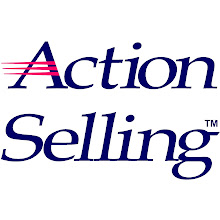Sales Managers: Asking Good Questions
Three-quarters of the secret to professional, strategic selling boils down to asking the Best Questions and listening carefully to the answers. Most of the Best Questions have to do with uncovering the crucial, underlying needs your products or services might serve. But you also must know how to sell to a particular account. Using the same strategy for all customers is a big mistake. The issue is, how do you compete for this customer's business?
If you haven't had professional sales training offered by The Sales Board, how do you know the right way to sell a customer? You ask.
For instance, you need to know when to time your sales calls, who to call on, what to present to each individual or group who will influence the buying decision, and how the decision ultimately will be made. How do you learn all of this? By asking questions early in the game.
Competition - Who are you competing against for this sale? Once you know, you can ask targeted questions to draw out specific needs that you can resolve but your competitors can't. And when presenting features and benefits of your products, you can lead with your specific competitive strengths.
Time Frame - When does the customer expect to make a buying decision? More importantly, when does the customer want to begin to reap the benefits expected from the purchase?
Buying Influences - Who controls the budget? Who analyzes the technical aspects of your product? Who will be responsible for making your product work correctly in the organization? This information tells you which features and benefits to stress to which audience.
Buying Process - How will the buying decision actually be made? Who must be "sold" before the transaction can be completed? Which criteria will be most important in the decision? By getting clear answers to these questions early in the process, you can develop a strategy that will shorten your sell cycle, allow you to anticipate and defuse objections that otherwise would arise later, and make a lot more sales.
Do you want more information about how to ask the best selling questions? Contact us to learn more about leverage questions.


